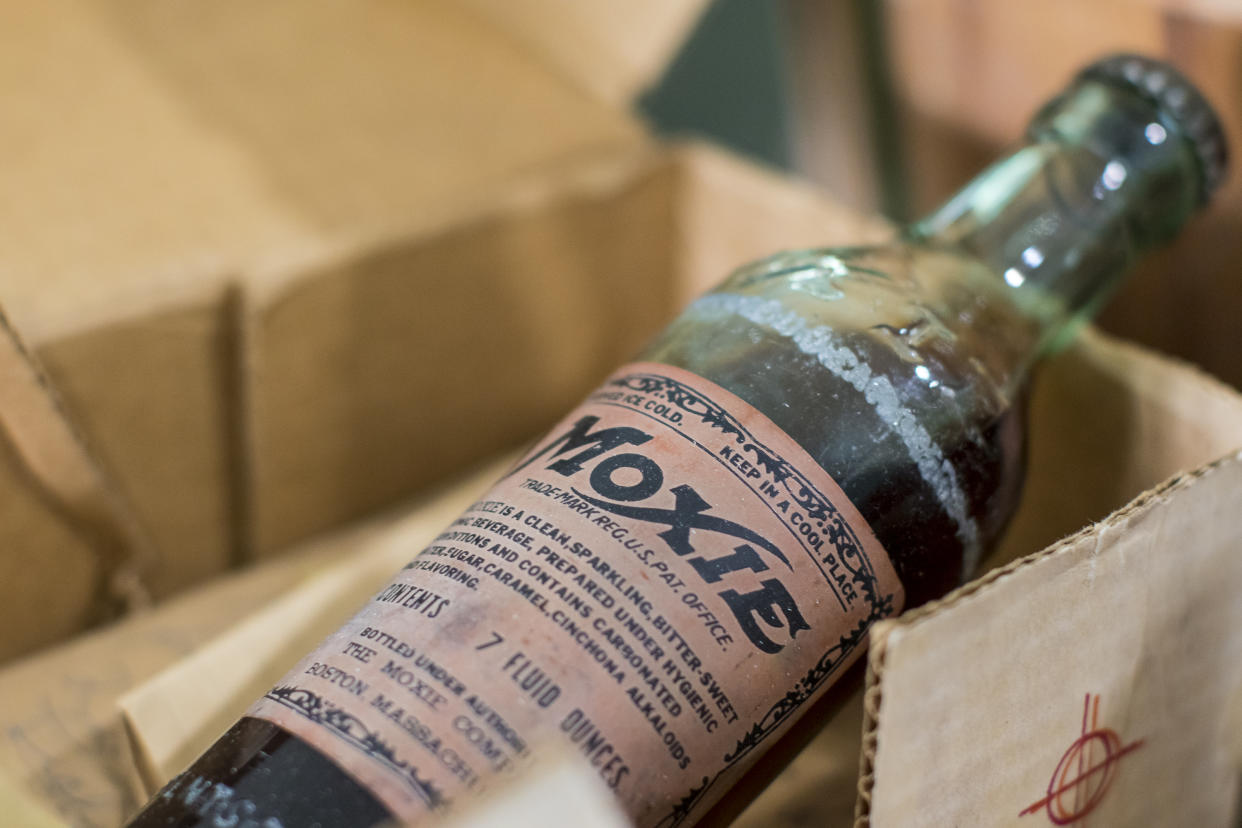Why Chefs Love Moxie, New England's Cult-Favorite Soda

Moxie, the curiously flavored soda acquired by Coca-Cola Co. this week, isn't just a soft drink—it’s a symbol of New England pride. Made in New Hampshire, the country’s oldest bottled pop boasts its own festival (mark your calendars for next July), fan club, and at one time, its own museum ("tucked away in a corner of a Maine general store," as Atlas Obscura describes the all-too-perfectly located collection that once was.) Naturally, it has an especially strong foothold in Maine, where it’s the official state drink.
For those who haven't tried it, its flavor—marketed as “distinctively different”—has been compared to rust, burnt rubber, and battery acid. Initially made by Dr. Augustin Thompson in the 1800s as a cure-all, the convenience store- and cook-out staple contains gentian root and tastes root beer-like at first, with a bitter, somewhat medicinal finish.
If you can't tell, it’s a love-it-or-hate it kind of drink. As for chefs? They can’t seem to get enough of it.
Beyond being a playful, local nod on high-end restaurant menus, Moxie can actually add an, ahem, pop, to everything from meats to desserts and cocktails.
Just ask Matt Jennings, author of the New England cookbook Homegrown: Cooking from my New England Roots and owner of the recently closed Boston restaurant Townsman. “It’s a really unique product, and unlike anything else in the category,” he says. “It has this herbaceous, savory flavor on the back of the palate. As a chef, it’s unusual to find a product that falls into the sweet category that is not just a one-note flavor.”
The sweet-bitter concoction, somewhat similar to Dr. Pepper, is an especially good foil for fatty meats. Jennings’ cookbook includes a recipe for braised short ribs with Moxie beans, a play on Boston baked beans, and he also likes to make vinegar with it. Meanwhile, chef Will Gilson, of Puritan and Company, in Cambridge, has long used reduced Moxie to glaze for lamb belly. It adds glossy sweetness without being cloying, and the bitterness of the beverage has an amazing ability to cut through fat. The chefs have also used it in barbeque sauce and as a glaze for chicken wings.
Gilson, who spit out his first sip of Moxie at the age of six after grabbing a can from grandfather’s fridge, likens its appeal to increasingly-popular bitter aperitifs. “As I got older, I started to find it really refreshing,” Gilson says. “It’s like how Fernet became the unofficial drink of restaurant kitchens from 2008 until recently. That kind of bitter, root flavor actually became something that people were looking for.”
But it doesn't stop at savory applications, either. Both Gilson and Jennings have experimented with using Moxie as a base for an ice cream float. And a Moxie parfait float took top honors in the dessert category in this year’s Moxie Festival recipe contest.
Bartenders love it, too. At the bitters-focused bar Vena’s Fizz House, in Portland, co-owners Johanna and Steve Corman are currently mixing it with Añejo tequila, lime juice, and Maine-made Coastal Root Bitters in a drink dubbed the Dirty Moxie. The depth of whiskey-barrel-aged tequila plays well with the aromatics in the soft drink, he says. “I never liked Moxie growing up,” Steve Corman says. But when he opened Vena’s (initially as a non-alcoholic bar), he started nerding out on bitters, and eventually, his taste changed. “One day, I was like, wow, I love this drink. It’s the craziest, weirdest experience on my palate.”
Also in Portland, the restaurant Little Giant mixes Moxie with cardamom-infused Allen’s Coffee Flavored Brandy (another state staple) and cream in its Vacationland brunch drink.
Right now, fans can only speculate what, if anything, the Big Soda acquisition will mean for the cult-favorite beverage. So far, Coke has said in a statement that they “take seriously our responsibility to ensure it stays true to its northeastern roots,” and there are no current plans to change its distribution.
Regional chefs and devotees will certainly be keeping tabs to make sure the corporation does right by the soda. “ If a company like Coca-Cola can get it into more hands and help keep it alive, I think that’s great,” Gilson says. “Just don’t mess with our Moxie.”

